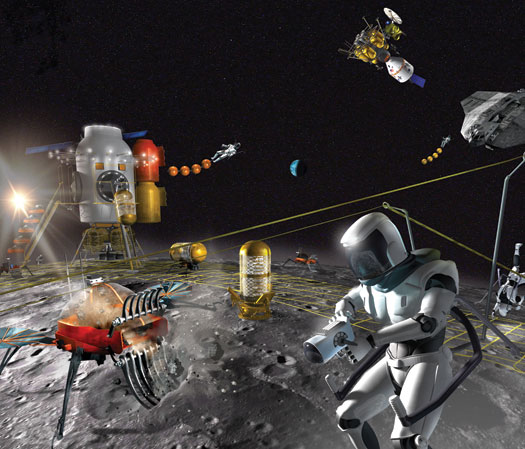

The prospect of great wealth will be one of the main draws of space exploration in the coming decades. A 650-foot-diameter asteroid (about average) can contain $1 billion or more worth of platinum-group metals and untold amounts of ice or water—which are perhaps even more valuable in space because they can be converted to fuel in situ. But extracting those resources will present some unique challenges. For example, the combination of asteroids’ near-zero gravity (because of their small mass) and quick spin (up to one rotation every couple of minutes) means that asteroid-nauts must attach everything, including themselves, to the rock, or risk floating off into space.
Click to launch the photo gallery.
THE NEXT FORTY-NINER MINERS WILL BE IN SPACE
2001: NASA’s NEAR Shoemaker spacecraft is the first to land on an asteroid
2010: Japanese probe Hayabusa is the first to return asteroid samples to Earth
2011: Dawn starts orbiting the asteroid Vesta
2025: NASA plans to land a human on an asteroid
2035: Long space missions make producing hydrogen fuel on asteroids commercially viable
2050: Declining spaceflight costs make mining asteroids for metals profitable





